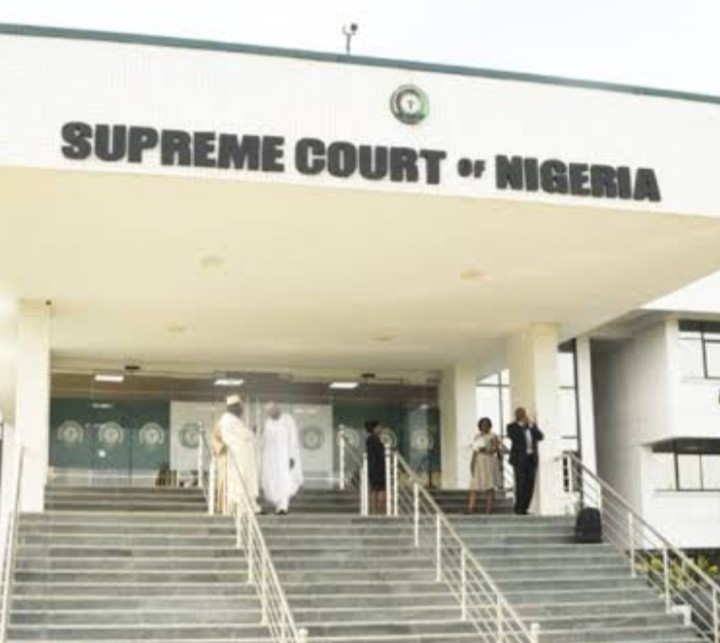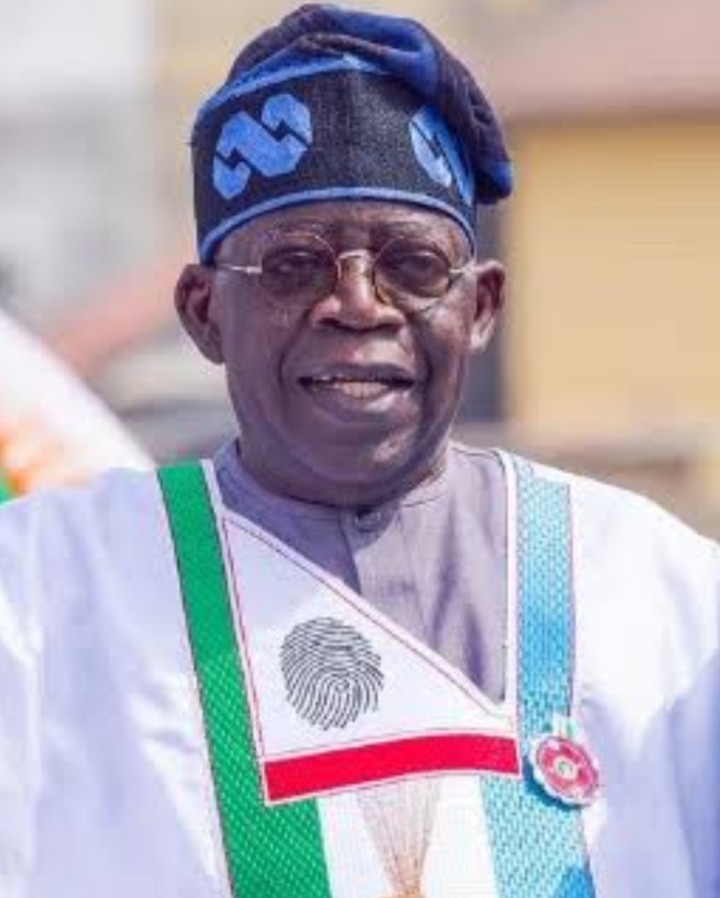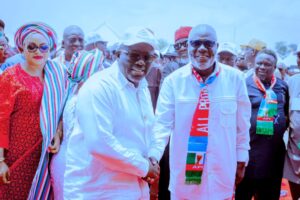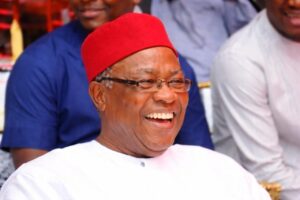
Signage
* Dismisses appeal
* Orders PDP to pay N2m damages to Tinubu, APC, INEC and Shettima
By Jon Egie
In a unanimous decision by a 5-man panel, the Supreme Court (SC) dismissed an appeal by the PDP files to disqualify Tinubu’s eligibility to contest the February 25 Presidential election saying the appeal lacked merit and describes the action of the PDP as “nosy busy-body and meddlesome interloper that is peeping into the affairs of it’s neighbour.
[the_ad id=”16914”]
The court held that the appeal marked: SC/CV/501/2023, was brought before it in bad faith, highlighting that the PDP, whose presidential candidate, Alhaji Atiku Abubakar who came second in February 25 Presidential election, has no legal right to challenge a nomination that was made by another political party.
In the appeal, PDP had prayed the court to disqualify Tinubu’s candidacy, alleging that Tinubu’s running mate and Vice President-elect, Senator Kashim Shettima, had double nomination s (both for Borno central senatorial seat and for VP position) before the 2023 general elections.

PDP maintained that Shettima’s dual nomination, was in gross violation of provisions of Sections 29(1), 33, 35 and 84(1) and (2) of the Electoral Act, 2022, as amended.
Apart from urging the court to invalidate Tinubu and Shettima’s candidature, PDP went further to apply for an order to compel the Independent National Electoral Commission, INEC, to expunge their names from the list of nominated or sponsored candidates that were eligible to contest the presidential election.
[the_ad id=”16917″]
But the Supreme Court, in its lead judgement delivered on Friday (yesterday), by Justice Adamu Jauro, accused the PDP of attempting to interfere in the internal affairs of the APC which nominated both Tinubu and Shettima for the presidential election.
Supreme Court upheld the concurrent decisions of the Court of Appeal and the Federal High Court in Abuja, which earlier dismissed the case for being frivolous .
Supreme Court agreed with the respondents that section 285 (14) (c ) of the 1999 Constitution, as amended, as well as section 149 of the Electoral Act, 2022, did not confer the Appellant with the right to challenge the Tinubu’s candidacy on the ground of Shettima’s alleged double nomination by the APC.

Supreme Court held that section 84 of the Electoral Act only empowered an aspirant that participated in the primary election of a political party, to challenge the nomination of a candidate by the party, holding further that the PDP failed to establish the injury it suffered as a result of the nomination by the APC, and adding that the law did not permit a political party to dabble into domestic affair of another political party.
[the_ad id=”16920″]
Supreme Court held that PDP was unable to prove that its civil rights and obligations were in danger of being infringed upon and hence, the lower courts were right when they declined to hear PDP’s case on its merit, since they lacked the requisite jurisdiction to do so.
[the_ad_placement id=”advert”]
Supreme Court further descended on the PDP, describing the appeal as the action of “a nosy busy-body and a meddlesome interloper that is peeping into the affairs of its neighbour.”
Justice Jauro equally noted that the 180 days that was statutorily prescribed for the determination of such pre-election matter, had since elapsed, thus, rendering the action as statute barred.
[the_ad_placement id=”advert”]
In his contribution, head of the apex court panel, Justice Inyang Okoro, described the case PDP brought against Tinubu as “one of the most frivolous appeals that this court has been inundated with in recent time.”
He insisted that the appeal was aimed at bringing the judiciary to public ridicule, accusing the PDP and its members of using the social media to set a booby trap for the court.
Another member of the panel, Justice Amina Augie, said it was wrong for the PDP to liken its appeal against Tinubu to Imo state 2019 governorship election dispute that involved the candidate of the APC, Uche Nwosu.
Justice Augie held that whereas Nwosu was confirmed to have participated in primary elections that were conducted by both the APC and the Action Alliance, AA, with his Form CF 001 submitted to INEC, it was not the same case in the appeal against Tinubu and Shettima.
More over, she noted that PDP’s candidate in the presidential election, Atiku, was already a governor-elect in 1999, when he was subsequently nominated to become a Vice Presidential candidate.
[the_ad_placement id=”advert-2″]
“So, the question is, what has changed since then?,” Justice Augie queried. The apex court held that evidence before it showed that Shettima withdrew as the candidate of the APC in the Borno senatorial election, on July 6, 2022, and was replaced by the party on July 14, 2022, after INEC was duly notified about the development, in writing.
Justice Augie noted that Shettima was no longer a candidate of the APC for the Borno Central Senatorial District, as at the time he was nominated as the Vice Presidential candidate.
“Multiple nominations with the electoral act does not occur simply because he accepted a second nomination, the fact that the acceptance was immediately relinquished so as to pave way for another person to replace him as senatorial candidate cannot be overlooked or disregarded,” another member of the panel, Justice Emmanuel Agim added.
“In whichever angle this appeal is veiwed, it is frivolous and bound to fail.
“From the trial court, down to this court, it has been a waste of precious judicial time.
“The instant appeal was unnecessary and counsel should do better to advice their client against filing this sort of suit in future,” Supreme Court added.
[the_ad id=”16914″]
Dismissing the appeal, the Supreme Court ordered the PDP to pay N2million damages to the respondents- INEC, Tinubu, APC and Shettima.





